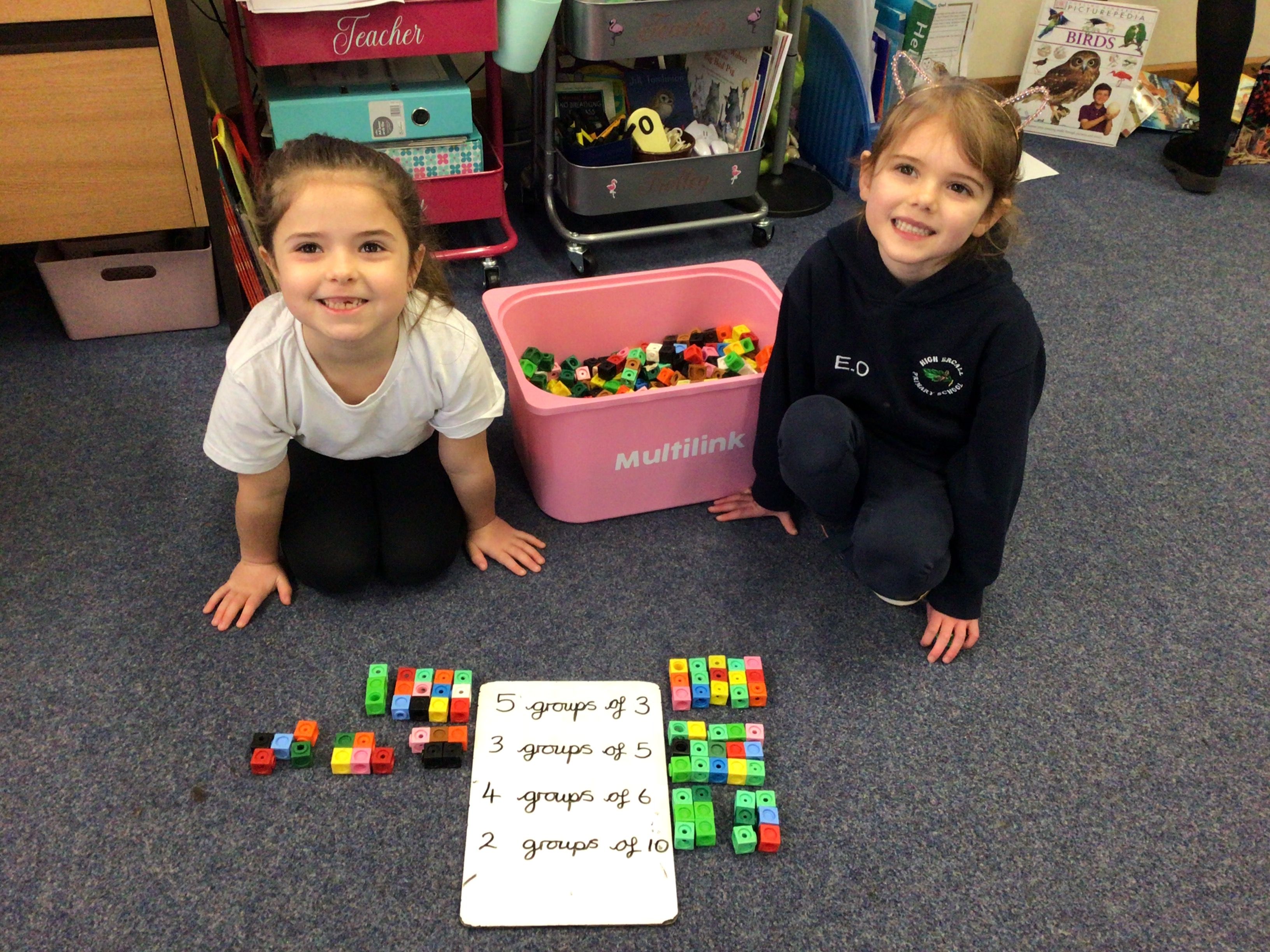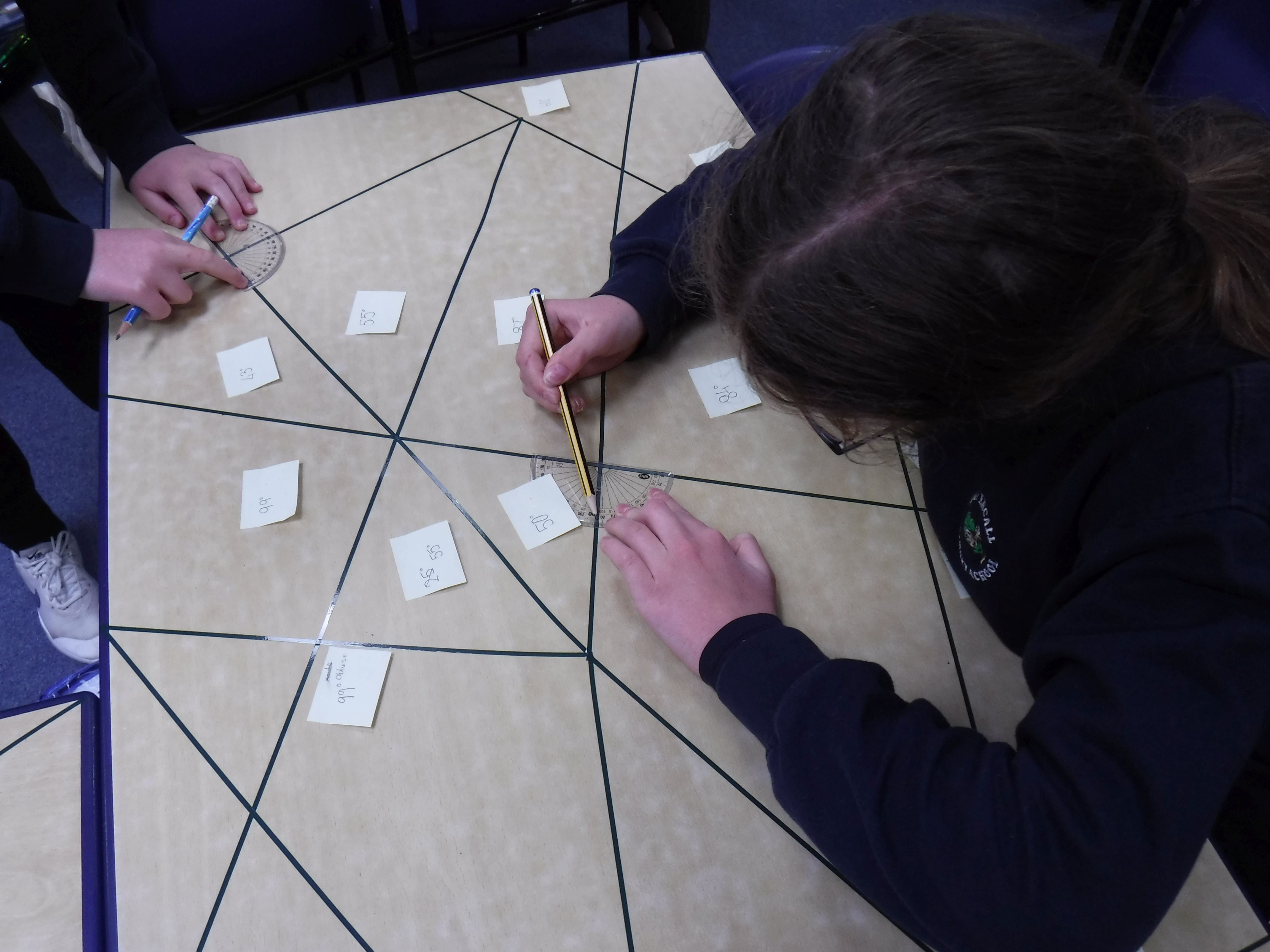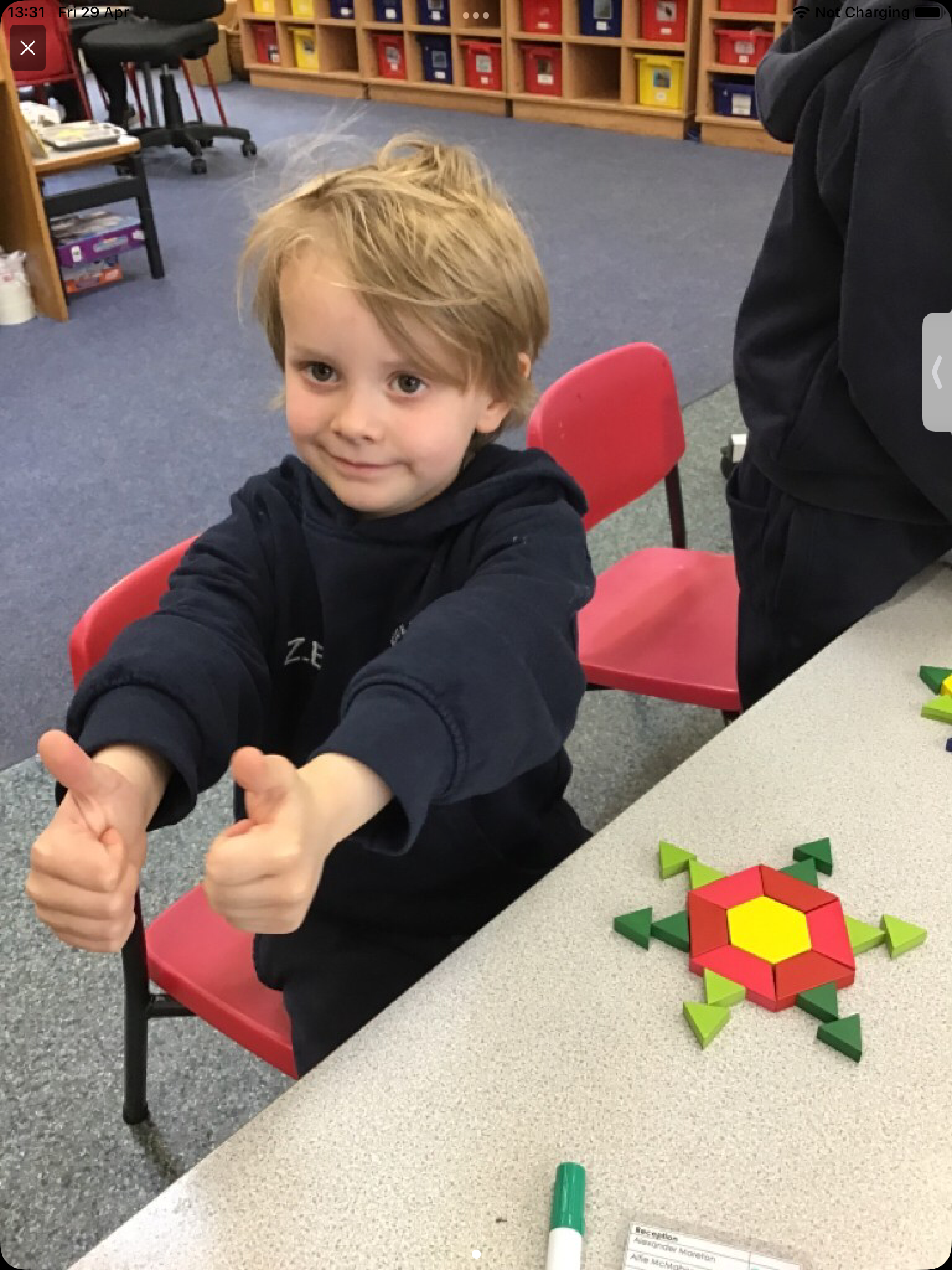Intent
What does maths look like at High Ercall School?
At High Ercall Primary school, we aim to inspire all children to reach their full potential. We believe that children should be able to recognise the importance of maths in the wider world and that they are also able to use their mathematical skills and knowledge confidently in a range of different contexts.
The intent of the mathematics curriculum is to meet the three aims of the curriculum: become fluent in the fundamentals of mathematics; reason mathematically; and can solve problems by applying their mathematics to a variety of routine and non-routine problems with increasing sophistication.
Our curriculum has been built to include our key curriculum drivers:
The children are encouraged to develop our school values (the 5Rs) when studying maths, with a specific focus on resilience as children are encouraged to reason and solve problems independently. We understand that children learn in a variety of ways, and so where appropriate, children will learn maths in an active way, with use of concrete, pictorial and abstract methods.
In maths, we have also considered the journey of a child through the school, we use the nationally recognised White Rose Maths planning which matches the needs of our school and the structure of our classes alongside the use of Number Sense from EYFS to Y3 to support with maths fluency.
What do we want children to be able to do by the end of Year 6?
We follow the National Curriculum expectations for maths and expect that our pupils will have met or exceeded the expected standards for Year 6 pupils. Our math’s targets detail the expectations for each individual year group so both teachers and pupils can use these for consistency and progression.
By Year 6, we expect most pupils to have a good grasp of declarative, procedural and conditional knowledge of all topics and are ready for the KS3 mathematics curriculum.
Implementation
How is the curriculum for maths organised and how do we teach it?
The White Rose Maths curriculum is a cumulative curriculum, so that once a topic is covered, it is met many times again in other contexts. For example, place value is revisited in addition, subtraction, multiplication, and division. The curriculum recognises the importance of children’s conceptual understanding of number. It is therefore designed to ensure that time is invested in reinforcing this to build competency and promotes depth not breadth.
The maths curriculum is clearly sequenced to develop long term learning and focuses on the core content in the primary curriculum. The following aspects are sequenced throughout the curriculum so that pupils become familiar with their reciprocal relationships:
Declarative knowledge – refers to facts and formulae, and the relationship between the facts: the conceptual understanding
Procedural knowledge – refers to methods, and the principles underpinning them
Conditional knowledge – refers to knowledge and understanding of strategies which can be used to reason and solve problems. This extends to combinations of declarative and procedural knowledge which then become strategies for types of problems.
The following content and principles underpin the 2014 Mathematics curriculum and the Maths curriculum at High Ercall Primary school:
- Teachers reinforce an expectation that all children can achieve high standards in Mathematics.
- Our curriculum is ambitious for all pupils whilst ensuring that pupils in the same year group move through the curriculum at the same pace; significant time is spent developing deep knowledge of the key ideas that are needed to underpin future learning. This ensures that all can master concepts before moving to the next part of the curriculum sequence, allowing no pupil to be left behind.
- If a pupil fails to grasp a concept or procedure, this is identified quickly and early intervention ensures the pupil is ready to move forward with the whole class in the next lesson.
- The structure and connections within the mathematics are emphasised, so that pupils develop deep learning that can be sustained.
- Practice and consolidation play a significant role. Carefully designed variation within this builds fluency and understanding of underlying mathematical concepts.
- Teachers use precise questioning in class to test declarative, procedural and conditional knowledge and assess children regularly to identify those requiring intervention, so that all children keep up.
- Children’s explanations and their proficiency in articulating mathematical reasoning, with the precise use of mathematical vocabulary, are supported using working walls and modelling provided by the teacher. These help the children to make connections and expose the structure of the maths.
- Key facts such as multiplication tables, number bonds and shapes are practised every day to ensure automaticity to avoid cognitive overload in the working memory and enable pupils to focus on new concepts.
Planning
Teachers use the following White Rose Maths documentation to support their teaching of maths, which ensures a consistent approach throughout school:
- Long term plan
- Scheme of work including vocabulary, books and outdoor learning ideas
- Premium resources – PowerPoints and worksheets
- Calculations policies
- Ready to Progress mapping
- EYFS Guidance
Teachers also use documents from Number Sense to support their teaching of number and fluency.
Mathematical topics are taught in blocks, which are broken down into smaller steps, to help children understand concepts better. This approach means that children do not cover too many concepts at once which can lead to cognitive overload.
Lessons are planned to provide plenty of opportunities to build reasoning and problem-solving elements into the curriculum. When introduced to a new concept, children can use concrete objects and manipulatives to help them understand what they are doing. Alongside this, children are encouraged to use pictorial representations. These representations can then be used to help reason and solve problems. Both concrete and pictorial representations support children’s understanding of abstract methods.
Each lesson phase provides the means for children to achieve greater depth, with children who are quick to grasp new content, being offered rich and sophisticated problems, within the lesson as appropriate.
Our approach to the EYFS curriculum
Our maths curriculum supports the ethos of the EYFS whilst at the same time enabling teachers to create a mathematically rich curriculum. Additionally, it allows for key mathematical concepts to be revisited and developed further across the year.
Use of Number Sense provides opportunities to develop the understanding of number whilst the White Rose Maths EYFS scheme of work promotes opportunities to develop the understanding shape, measure and spatial thinking.
Children with SEND
Our children with any additional needs access the same high-quality teaching and learning in maths as their peers. Our curriculum is fully inclusive and supported by our well-trained staff. They may also be supported through an Individual Provision Map with, for example, additional fluency work using Number Sense, Times Tables Rockstars or the use of Mathshed or White Rose Maths resources to offer further resources and support. This will give additional provision for that child.
Where necessary an adapted curriculum is fully planned to take into account individual needs within the high-quality whole class teaching. In maths, this could mean that a child:
- has a scribe, or writes on worksheets, to support with recording
- has resources that are easily accessible within the classroom environment such as numicon, counters, place value charts and fraction walls
- use of visual resources such as number lines, place value mat and vocabulary mats to support with the development of methods and number formation
- has extra time to help with processing and organising ideas
- Use of timely intervention to embed learning and address misconceptions
This is monitored by our SENDCO - Sarah Roberts - and parents are fully engaged and involved.
Impact
All our staff, senior leaders and governors are involved in measuring the impact of our maths curriculum in differing ways. This is planned through the School Development Plan, using our annual monitoring cycle and termly development plan to map out monitoring and review over the year.
Gemma Lingham is our maths Subject Leader. There is a clear monitoring cycle in place which evaluates maths teaching and learning, outcomes, pupil and parent voice. These outcomes feed into action planning to continually evaluate and improve our teaching and learning in maths.
Our Standard Assessment Test (SAT) data shows that:
- Children in EYFS, Year 2 and Year 6 achieve in line or above national expectations.
- Our children in Year 6 achieve well above national expectations, with 81% achieving age related expectations and 19% achieving 'Greater Depth' in the SATs maths test.
- 71% of our Y4 cohort achieved full marks (25/25) in the multiplication check in 2024/25 with 88% achieving 24 marks or higher. The average score out of 25 was 23.5.
How do we review and assess learning in maths?
Maths in our school is progressive and planned to meet the needs of all children. Regular and ongoing assessment informs teaching, as well as intervention, to support and enable the success of each child. Assessments are carried out at the beginning and end of each unit and termly to ensure children are consolidating and learning new knowledge and applying these to reasoning and problem solving.
Different assessments help us in different ways.
Here are some examples:
- Asking questions of the children within lessons
- Talking to the children about their methods and mathematical thinking
- Setting homework closely related to the children's current topic with the use of MathShed
- Use of Times Tables Rock Stars to assess children's multiplication and division knowledge
- Marking work immediately to identify any misconceptions
- Pre and post unit assessments
- Summative assessments every term
- End of Key stage SATs results
We review our teaching and learning in maths by:
- A review of learning in books
- Lesson observations and feedback to teaching staff
- Evaluation of the impact of staff professional development
- A review of medium-term planning
- Talking to pupils about learning in mathematics
- Parental response to school initiatives such as TTRS day and parent information workshops.
- Governor review trails to evaluate the impact of the curriculum - this could be reviewing the website or the curriculum offer, talking to staff and pupils.



